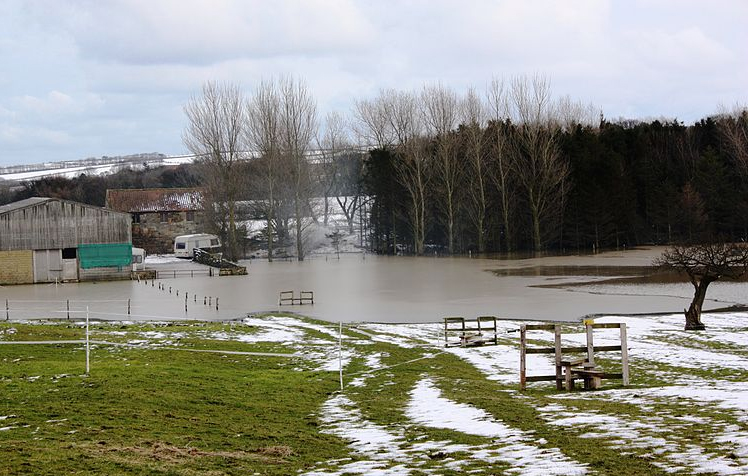
A more effective partnership between farmers, government and the Environment Agency is needed to protect agricultural land from flooding.
Despite an additional £120m for flood defences announced in the autumn, farmers believe that long standing budget cuts have seen river maintenance reach 'an all time low'.
The Chartered Institution of Water and Environmental Management said increased investment was needed to combat the damage of floods.
"While belt tightening is part and parcel of life at present, there are some areas that must be protected – investment in sustainable flood infrastructure is one such area" said CIWEM Executive Director, Nick Reeves.
"Failure to invest in infrastructure and manage the risks of flooding in a sustainable, realistic way will lead to continued loss of life and property, extensive damage to the UK economy and ongoing misery for millions of people."
NFU Deputy President Meurig Raymond said it was critical that the Environment Agency and Defra put far more funding into maintenance budgets and that Defra policy re-balanced the weighting for flood defence spending to give greater consideration to high value farmland.
"We’ve heard today how farmers are still battling the impacts of wet land, whether that’s not being able to harvest crops or vegetables or autumn plantings being drowned, there are huge concerns out there" he said.
"And while the capital budget has been given an additional £120m, in the main for defence projects, we have heard today that the Environment Agency is expected to have £49m less over the next few years to spend on essential things such as maintenance. This is nonsense and has to be reversed."
"Farmers are saying quite clearly that they are prepared to look after rivers and undertake additional drainage on their farm but they are prevented by additional regulations aimed at protecting habitats. Surely we can do both?"
The Association of British Insurers' raised concerns about the significant risk, which could lead to those within areas identified at greatest risk likely to find the level of future premiums to insure against flood risk unaffordable, if insurance is available at all.
With increased frequency and severity of flooding, the viability and future of communities where property cannot get insurance would be in question, causing whole communities to be potentially lost.
Where uninsured communities are affected, it is often the local authorities who provide the response to flooding and subsequently reclaim their expenditure from the Treasury.
CIWEM called on ABI to be 'proactive' in their own investment in flood reduction measures, including the provision of financial contributions to flood schemes that could otherwise reduce their own exposure to risk.
NFU's Raymond said: "Today we are at the beginning of a dialogue with the agency that should lead to a better environment and more productive farmland. For its part the NFU will continue to lobby ministers in the strongest terms on the urgent need to reverse the decline in spending for essential river maintenance."
